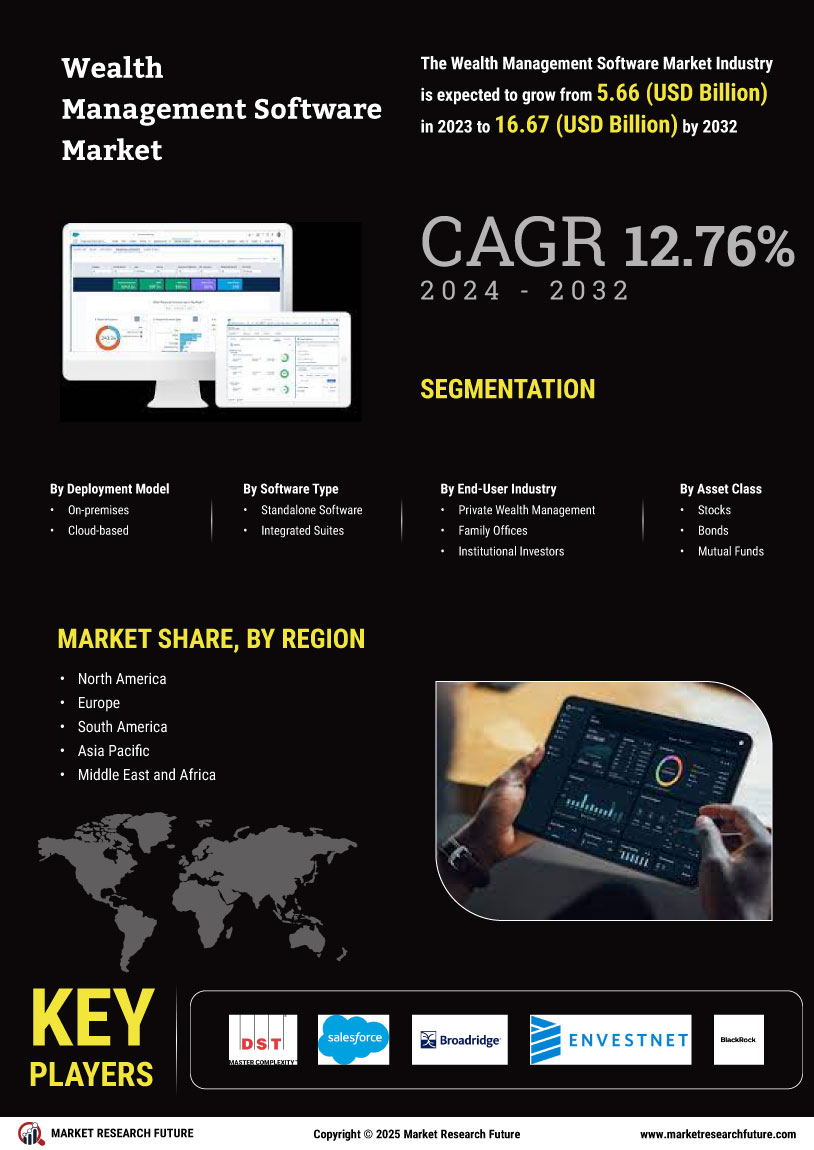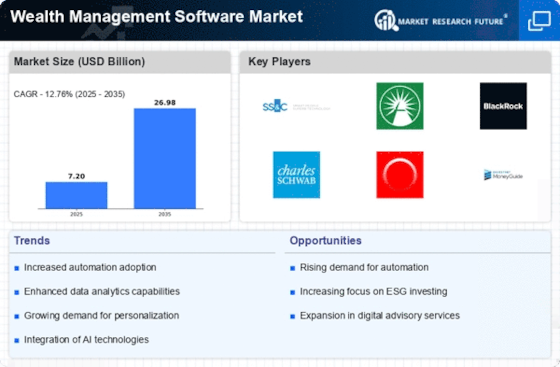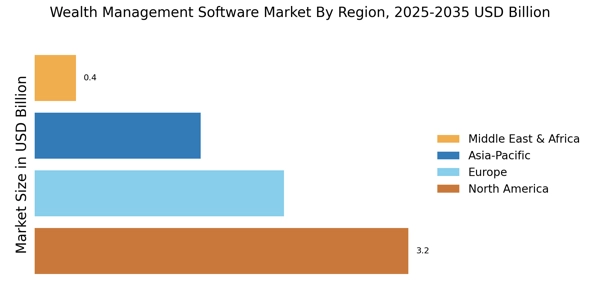Growing Regulatory Requirements
The Wealth Management Software Market is increasingly influenced by the growing regulatory landscape. Financial institutions are facing heightened scrutiny and compliance requirements, necessitating the adoption of robust software solutions that can ensure adherence to regulations. This trend is particularly evident in areas such as anti-money laundering and data protection, where firms must implement comprehensive compliance measures. As a result, the demand for wealth management software that includes compliance features is on the rise. Market analysis indicates that the compliance software segment is expected to grow significantly, reflecting the industry's need to mitigate risks associated with regulatory non-compliance.
Increased Focus on Data Security
Data security has emerged as a critical concern within the Wealth Management Software Market. With the rise in cyber threats and data breaches, wealth management firms are prioritizing the protection of sensitive client information. This focus on data security is driving the demand for software solutions that incorporate advanced security features, such as encryption and multi-factor authentication. As clients become more aware of the risks associated with data privacy, they are likely to favor firms that demonstrate a commitment to safeguarding their information. Consequently, the market for secure wealth management software is expected to expand, as firms seek to enhance their security protocols and build client trust.
Shift Towards Digital Transformation
The Wealth Management Software Market is witnessing a significant shift towards digital transformation. As clients increasingly prefer online and mobile access to their financial information, wealth management firms are compelled to adopt digital solutions that facilitate seamless interactions. This trend is reflected in the growing investment in digital platforms that offer user-friendly interfaces and comprehensive functionalities. Market data suggests that the digital wealth management segment is projected to grow at a rapid pace, driven by the need for enhanced client engagement and operational efficiency. Firms that embrace digital transformation are likely to improve their service delivery and attract a broader client base.
Technological Advancements in Financial Tools
Technological advancements are significantly shaping the Wealth Management Software Market. Innovations such as blockchain, artificial intelligence, and machine learning are being integrated into wealth management platforms, enhancing their functionality and efficiency. These technologies enable wealth managers to analyze vast amounts of data, automate routine tasks, and provide real-time insights to clients. The adoption of such advanced tools is expected to increase, with the market for AI-driven wealth management solutions anticipated to reach several billion dollars by 2026. Consequently, firms that leverage these technologies are likely to gain a competitive edge, as they can offer more efficient and effective services to their clients.
Rising Demand for Personalized Financial Services
The Wealth Management Software Market is experiencing a notable increase in demand for personalized financial services. Clients are increasingly seeking tailored investment strategies that align with their unique financial goals and risk appetites. This trend is driven by a growing awareness of the importance of customized financial planning, which has led to a surge in the adoption of wealth management software that offers advanced analytics and client profiling capabilities. According to recent data, the market for personalized financial services is projected to grow at a compound annual growth rate of over 10% in the coming years. As a result, wealth management firms are investing in software solutions that enhance their ability to deliver bespoke services, thereby improving client satisfaction and retention.

















